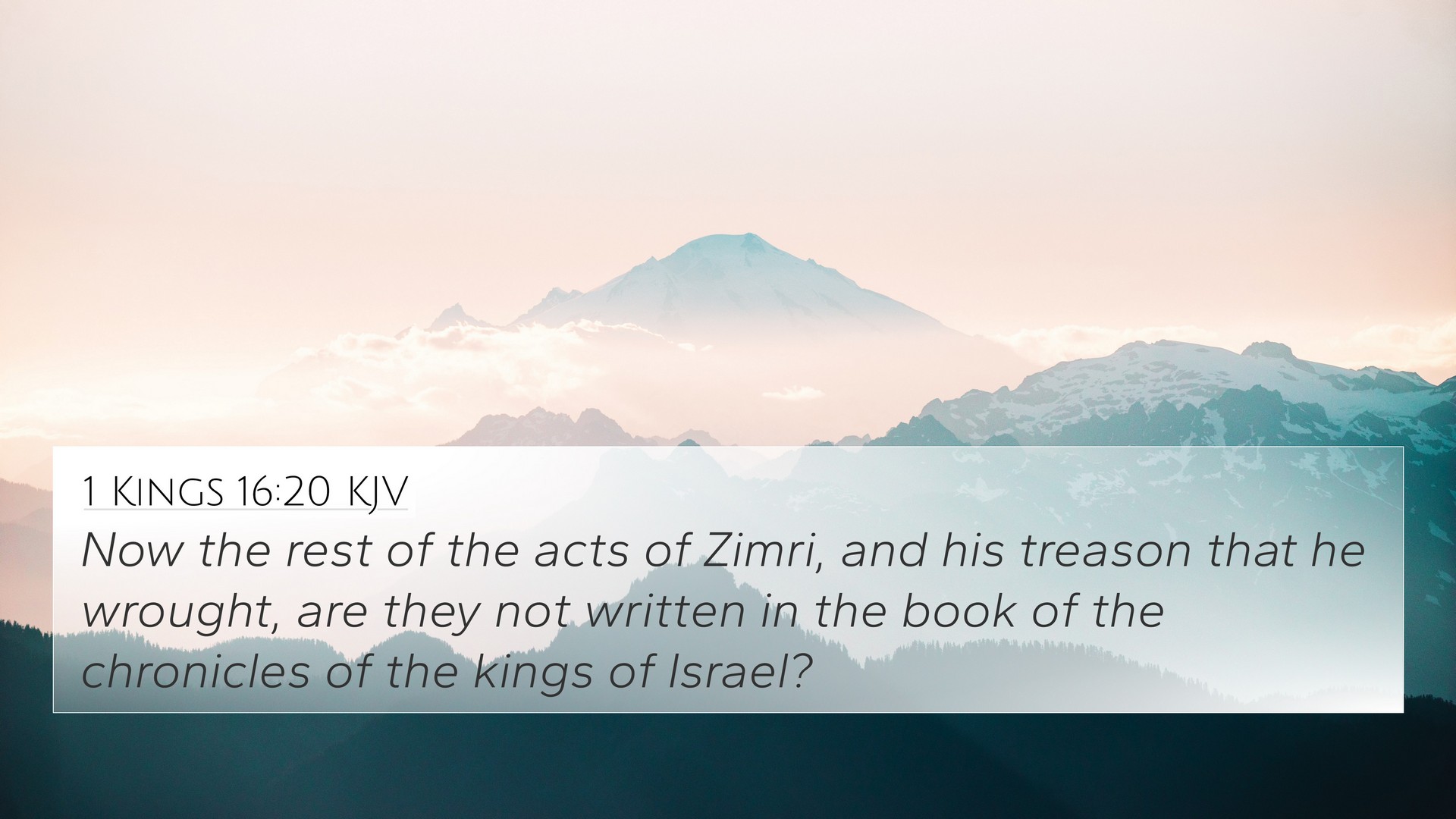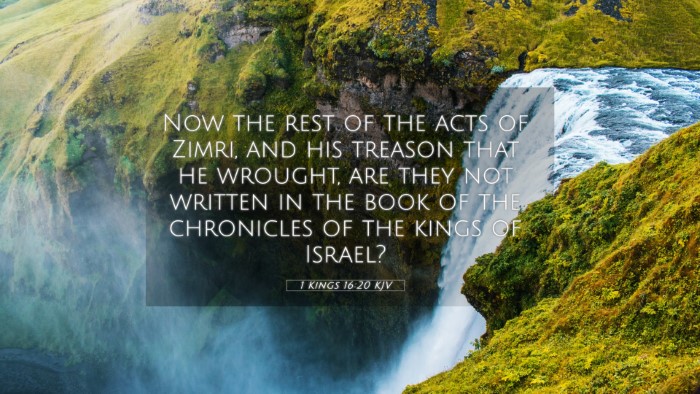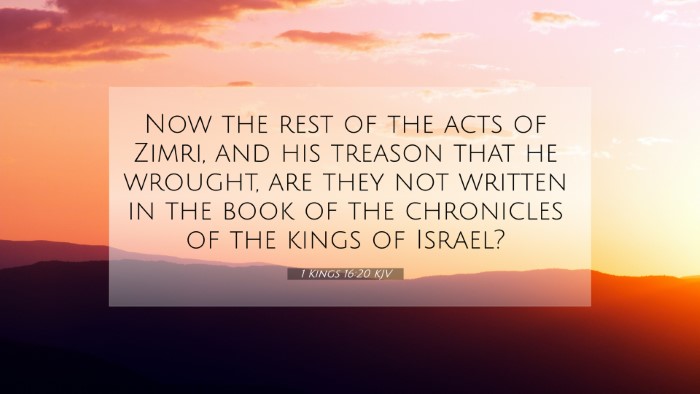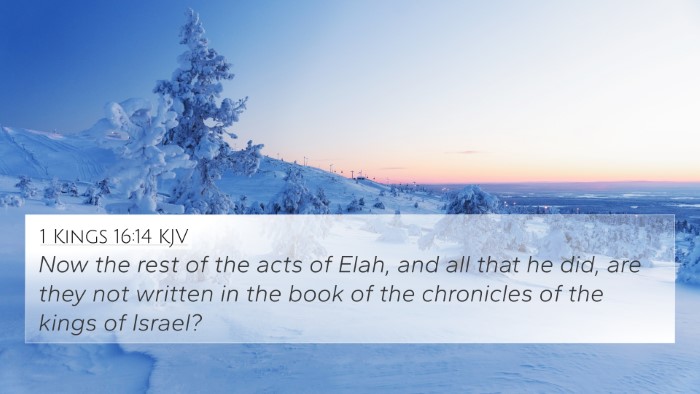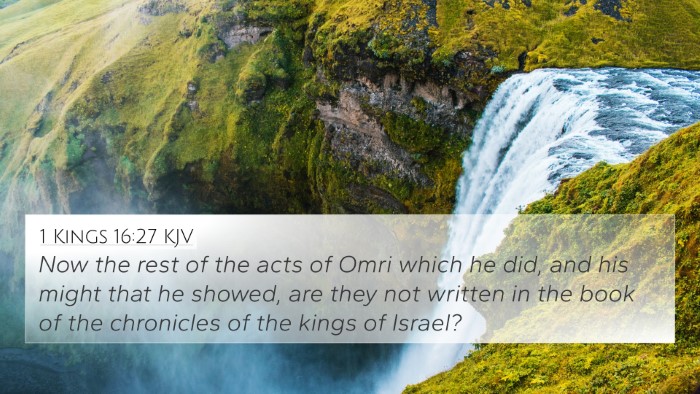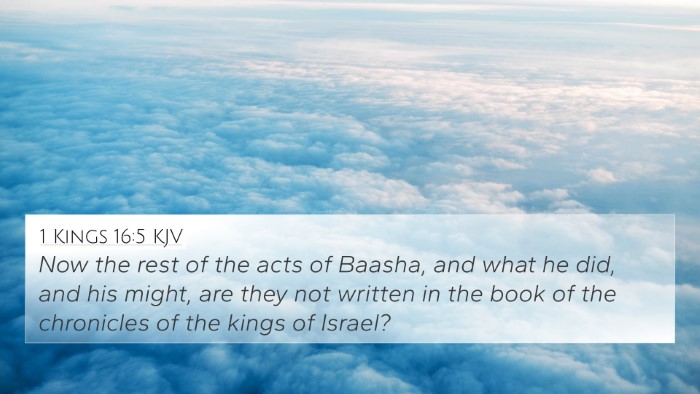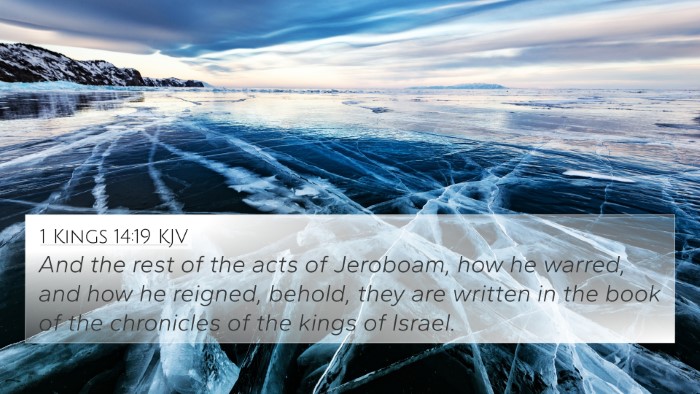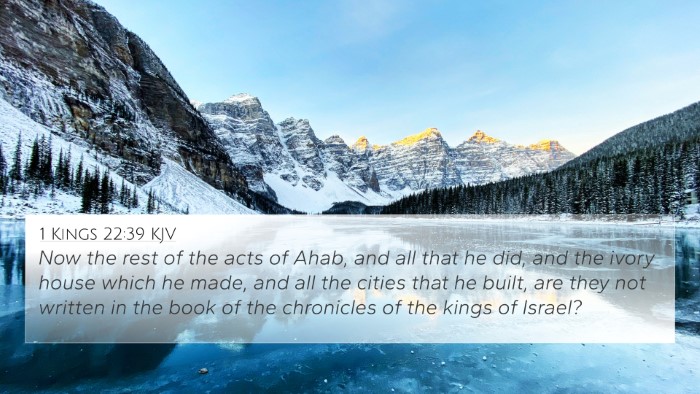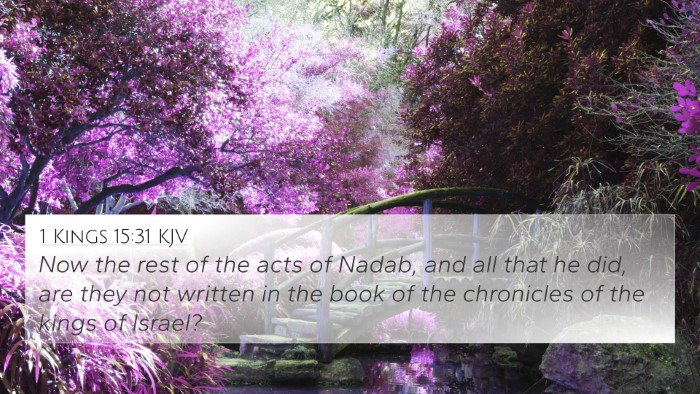Understanding 1 Kings 16:20
Verse: 1 Kings 16:20 - "And the rest of the acts of Zimri, and his treason that he wrought, are they not written in the book of the chronicles of the kings of Israel?"
This verse serves as a crucial closure to the narrative of Zimri's brief and turbulent reign. It offers an insight into the historical context of Israel's monarchy, highlighting the importance of record-keeping in biblical history.
Summary of Commentary Insights
Commentary from Matthew Henry emphasizes the brevity of Zimri’s rule, recognizing that his actions led Israel into turmoil. Henry notes that Zimri's assassination of the previous king, Elah, points to the instability and treachery within Israel's leadership. He also highlights the significance of recorded history as a means to understand the moral and political lessons emphasized in the narrative.
Albert Barnes elaborates on the implications of Zimri’s treachery. He points out that the reference to the book of chronicles implies a deeper historical record that serves as a testimony to the consequences of such treason. Barnes connects this to the broader narrative of Israel’s kings, illuminating the patterns of sin and rebellion present throughout their history.
Adam Clarke offers a perspective on the accuracy and reliability of the historical records mentioned in Scripture. He stresses that the mention of chronicles suggests not just a mere record of events, but a God-ordained account of human affairs, showing how divine providence operates amidst human politics and the offenses against God's commandments.
Bible Cross-References
- 2 Kings 9:31: Discusses the judgment of Jezebel and reflects themes of treachery and divine retribution.
- 1 Kings 16:10: Details Zimri's actions against King Elah, providing context for his own downfall.
- 1 Chronicles 9:1: Discusses the importance of genealogies and historical records in God's plan.
- 2 Chronicles 20:34: Emphasizes the records of the kings and their deeds.
- Psalm 9:16: Highlights God's justice in relation to the actions of the wicked, reflecting on Zimri’s actions.
- Proverbs 10:30: Relates to the idea of stability in righteousness versus the fleeting nature of wickedness.
- Galatians 6:7: Points to the principle of reaping what one sows, connecting the biblical theme of consequences.
Bible Verse Connections
This verse demonstrates several thematic connections and cross-references throughout the Bible. The link between Zimri’s political machinations and the resulting divine judgment is clear across various passages. Here are methods of exploring these connections:
- Tools for Bible cross-referencing: Utilize a Bible concordance to trace themes of treachery and consequences.
- Bible cross-reference guide: Refer to guides that outline the histories of the kings of Israel for comparative analysis.
- Scriptural cross-referencing: Study passages that discuss the refugees and exiles from the monarchy of Israel for a broader understanding.
Inter-Biblical Dialogue
The mention of Zimri's acts in the chronicles expands into a greater dialogue throughout the scripture, showing how his reign serves as a cautionary tale. The historical narratives create a dialogue highlighting themes of sin, judgment, and redemption that thread through both the Old and New Testaments.
Conclusion
In conclusion, 1 Kings 16:20 encapsulates the historical essence of the monarchy in Israel, portraying the results of treachery and the importance of recording history within the context of God's overarching plan. By examining cross-references and thematic connections, readers can gain a comprehensive understanding of biblical narratives and the significant impacts of individual actions within the divine framework.
